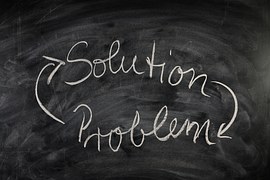April 26, 2012
In
General
Law FAQ: Negligence – Is the Other Driver At Fault for the Car Wreck? (Part II)
In yesterday’s blog post, I listed the 5 basic elements for a negligence claim: duty, breach, injury, causation, and proximate/legal cause.
Today’s post will focus on the first 2 elements which, for the most part, comprise the most interesting and difficult issues that arise in connection with negligence claims: duty and breach.
Negligence is commonly referred to as the “reasonable man” standard. Stated differently, a driver involved in a car wreck would be considered negligent if taking some action that most average people would deem unreasonable under the circumstances. Negligence can be predicated both on acts of commission (e.g. running a red light), as well as acts of omission (e.g. failing to pay appropriate attention to the road).
Basically, the rules of negligence boil down to requiring people to follow society’s basic “rules of the road” for reasonable conduct. For the most part, it’s commonsense-type stuff. The law of negligence is about reasonableness and balance. It does recognize, for example, that some injuries are simply unforeseeable and/or sometimes unavoidable.
Stated in legal terms, a court will consider the issue of legal duty in terms of what is known as “reasonable foreseeability.” This means that if your conduct would create a “reasonably foreseeable risk of injury” then you would naturally have an obligation to avoid the conduct, or to take reasonable precautions to protect innocent bystanders from the risk. The rule is really nothing different than The Golden Rule that churches, mothers and fathers teach their children every day.
For example, will a driver be held liable if the brakes on his truck suddenly and without warning fail, and he winds up in a car accident? Probably not, because the risk wasn’t necessarily foreseeable. By comparison, though, if the brakes had been acting up previously, and the driver just ignored it and kept on driving the truck instead of taking it to the shop for repairs, then he probably would be deemed negligent in that situation. Indeed, there was a known risk and he failed to take reasonable steps to protect others against a foreseeable risk of harm.
In other words, that driver would have breached his duty to those around him, and therefore he should rightfully be expected to make good on the injuries and damages unilaterally imposed on an innocent person.
This same analysis would apply to all sorts of things such as speeding, texting while driving, weaving too quickly in and out of traffic — i.e. things which impose an unreasonable and foreseeable risk of harm.
Note that the law of negligence is a far cry from the daily dose of nonsense you get from TV advertising, and from politicians. Indeed, it is NOT the type of automatic, jackpot money grab that the ambulance-chasing TV lawyers seem to imply, and that the so-called tort reformers would likewise have you believe as part of selling their grossly exaggerated claim that “the sky is falling with lawsuits.” To the contrary, the law does not provide for automatic liability whenever an injury occurs. Likewise, it does NOT impose a duty to eliminate each and every one of life’s many risks.
The law of negligence is simply about the common sense “reasonable man” standard which is very much akin the Golden Rule — “Do unto others as you would have them do unto you.”
Stay tuned for more about the question of how the law determines the winner of a lawsuit when — as is often the case in real life situations — both parties are somewhat negligent. This is referred to as the issue of comparative fault. Stay tuned.




 Let’s discuss legal problem solving. Does your lawyer merely work the problem, or solve the problem? There’s a difference, you know.
Let’s discuss legal problem solving. Does your lawyer merely work the problem, or solve the problem? There’s a difference, you know.